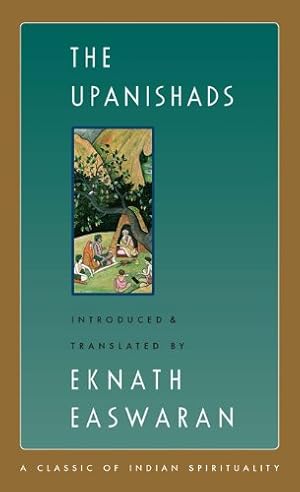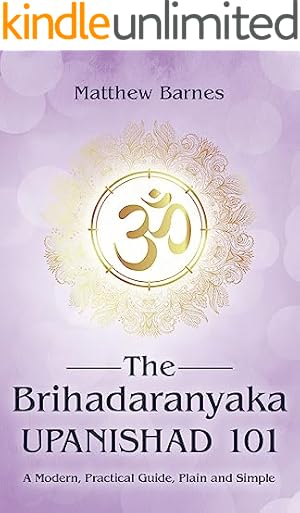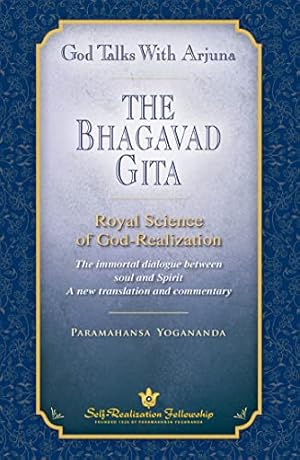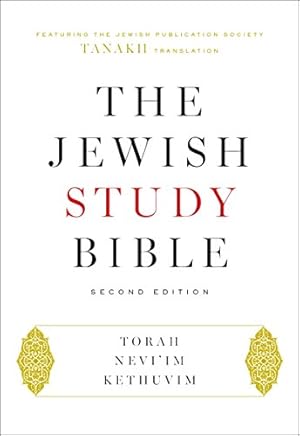Learn more
These promotions will be applied to this item:
Some promotions may be combined; others are not eligible to be combined with other offers. For details, please see the Terms & Conditions associated with these promotions.
Your Memberships & Subscriptions

Download the free Kindle app and start reading Kindle books instantly on your smartphone, tablet, or computer - no Kindle device required.
Read instantly on your browser with Kindle for Web.
Using your mobile phone camera - scan the code below and download the Kindle app.

Indian Mythology and Philosophy: The Vedas, Upanishads, Bhagavad Gita, Kama Sutra… And How They Fit Together (Ancient Wisdom) Kindle Edition
A cultural and intellectual history of Ancient India
Winner Best Indie Book Award 2024
Sitting down with the Bhagavad Gita at the age of sixteen opened many new channels in my mind. Ever since, for the best part of thirty years, I have been searching for a book on Indian thought that ties it all up, coherently and succinctly.
Write the book you want to read, they say—and this, here, is it.
While covering all the important areas (see contents list below), you will learn:
- How the Vedic gods are related to the Greek and Roman ones.
- The secret of the self that even the gods were desperate to learn.
- How to stop suffering, according to the Buddha.
- How to achieve enlightenment, according to the Hindus, Buddhists, and Jains.
- How the swastika came to be appropriated by the Nazis.
- How Gandhi’s non-violence is rooted in Indian philosophy.
- Why the Kama Sutra is about a lot more than sex.
- What yoga’s actually about—not even my yoga teacher knew this.
- How the Gupta Golden Age led to the invention of zero, chess, and nose jobs.
- And much, much more.
Never before has the history and substance of Indian thought been laid out as clearly and succinctly, and completely, as in Burton’s book. —Prof Nicolas Martin, Institute of Asian and Oriental Studies, University of Zürich
Impeccably crafted… a monumental achievement. —Rich Follett for Readers’ Favorite ★★★★★
The parallels between Indian and Greek philosophy amazed me… This book will hold your interest until the last page. —Courtnee Turner Hoyle for Readers’ Favorite ★★★★★
Burton shines a fascinating light on one of the world’s most ancient, and still thriving, cultures. —The US Review of Books (Recommended)
Insightful and thorough … Having practised yoga for years, learning about its background and significance offered me a new perspective. —The International Review of Books
Contents list
Preface
Introduction: A Picture of India
1. The Indus Valley Civilization
2. The Aryans and their Vedas
3. Vedic Gods: Indra, Agni, Soma, and the Rest
4. Sanskrit and the Grammar of Panini
5. The Upanishads
6. Brahman and Brahma
7. Atman, or the Self
8. Karma, Samsara, Moksha, Yoga
9. Life of the Buddha
10. Buddhist Philosophy
11. The Jataka Tales
12. The Panchatantra
13. Jainism, Ahimsa, and Gandhi’s Satyagraha
14. The Mauryas: Chandragupta and Ashoka
15. Greek India
16. Dharma, the Laws of Manu, and the Caste System
17. The Arthashastra of Kautilya
18. The Kama Sutra of Vatsyayana
19. The Ramayana of Valmiki
20. The Mahabharata of Vyasa
21. The Bhagavad Gita, or Song of God
22. The Puranas: Vishnu, Shiva, and Devi
23. The Guptas: The Golden Age of India
24. The Six Darshanas: Samkhya-Yoga
25. The Six Darshanas: Nyaya-Vaisheshika
26. The Six Darshanas: Mimamsa-Vedanta
Final words
◆ Grab your copy now and become an expert in one of the world’s oldest and richest cultures.
- LanguageEnglish
- Publication dateApril 28, 2024
- File size17.5 MB
Shop this series
See full series- Kindle Price:$22.97By placing your order, you're purchasing a license to the content and you agree to the Kindle Store Terms of Use.
- Kindle Price:$35.95By placing your order, you're purchasing a license to the content and you agree to the Kindle Store Terms of Use.
- Kindle Price:$45.94By placing your order, you're purchasing a license to the content and you agree to the Kindle Store Terms of Use.
Shop this series
This option includes 3 books.
This option includes 5 books.
This option includes 6 books.
Customers also bought or read
- The Upanishads (Easwaran's Classics of Indian Spirituality Book 2)#1 Most GiftedVedas
 Kindle Edition$7.99$7.99
Kindle Edition$7.99$7.99 - Indian Mythology: An Enthralling Overview of Myths, Gods, and Goddesses from India (Asia)
 Kindle Edition$1.99$1.99
Kindle Edition$1.99$1.99 - The Meaning of Madness: A Critical Guide to Mental Health and Illness (Ataraxia Book 1)
 Kindle Edition$4.99$4.99
Kindle Edition$4.99$4.99 - The Upanishads: A New Translation by Vernon Katz and Thomas Egenes (Tarcher Cornerstone Editions)
 Kindle Edition$10.99$10.99
Kindle Edition$10.99$10.99 - How to Think Like Socrates: Ancient Philosophy as a Way of Life in the Modern World
 Kindle Edition$15.99$15.99
Kindle Edition$15.99$15.99
Customers who bought this item also bought
From the Publisher

Indian Mythology and Philosophy
When a man knows the best and the greatest, he becomes the best and the greatest. —Chandogya Upanishad
Sitting down with the Bhagavad Gita at the age of sixteen opened many new channels in my mind. Ever since, for the past thirty years, I have been searching for a book on Indian thought that ties it all up, completely and succinctly. Write the book you want to read, they say—and this, here, is it.
Indian thought is complex and contradictory, making it hard to research and write about. There is a staggering amount of material to sift through. There are not one but four Vedas, each with four layers, and, within each layer, several commentaries written over several centuries. The Mahabharata, the longest poem in the world, has six times as many lines as the Bible. And then there are the Vedangas, the Shastras, the Puranas, the Tantras, and the extensive literature of the philosophical schools… Almost every position, including materialism and hedonism, has been defended by someone at some time.
Indian philosophy, unlike its Greek counterpart, is usually pursued within a religious context, with no clear divide between philosophy and theology. The central problem is the nature of the Self, or Atman, and its relation to the Absolute, or Brahman. On this basis, Indian philosophy is divided into schools, or darshanas (‘visions’), rather than into branches such as epistemology and metaphysics. That said, Hinduism is a lot looser than the Abrahamic religions, with no founding prophet, no single scripture, no central authority, no core doctrine or code of conduct, and no clear concept of God. Hindus might coherently think of themselves as monotheists, polytheists, pantheists, deists, agnostics, or anything in between. India is a world unto itself: as a religion, Hinduism developed more as a negative concept of contradistinction, and it might be said that Hindus are only Hindus insofar as they are not anything else.
The Buddha explicitly rejected a creator God, yet Buddhism is counted as the fourth largest world religion after Christianity, Islam, and Hinduism—suggesting that the hallmark of religion is not a belief in a creator God, or any god, but a belief in the conservation of values, that is, in something like karma, about which the Indian religions, especially Jainism, have a great deal to say. Karma is the greatest constant in Indian thought, lending a family resemblance to Hinduism, Buddhism, and Jainism. Gandhi, for one, regarded Buddhism and Jainism as traditions of Hinduism, which has adaptively assimilated the Buddha as the ninth avatar of Vishnu, after Rama and Krishna. In Hindu thought, the universe has a moral order that is independent of the gods, who are less than omnipotent. In the Chandogya Upanishad, Indra, the king of the gods, is made to wait 101 years before being told the secret to the self—not a bad deal, considering. Towards the end of the Mahabharata, Krishna is killed by a hunter who mistakes him for a deer.
Hindu cosmology is on a colossal scale. The universe contains not one world but thousands of millions. According to the Puranas, Vishnu’s ten avatars span a cyclic age, or maha yuga, which is 4.32 million years long. A thousand such cycles amount to a single day of Brahma, or kalpa, which is 4.32 billion years long. At the dawn of each kalpa, Brahma re-emerges from a lotus that has stemmed from the navel of Vishnu. A god lives for an entire kalpa but does not survive its dissolution.
Hinduism has been called Sanatana Dharma, ‘Eternal Order’, without beginning or end. Unlike Christianity and Islam, it arose out of a long process of evolution that began in pre-literate mythical-ritualistic-sacrificial times. From the first Upanishads (c. 800-600 BCE), the Vedic religion became much more introspective-speculative-philosophical, with a monkish, but still elitist, emphasis on renunciation and liberation that, not coincidentally, matched with Buddhism and Jainism. In the Bhagavad Gita, composed several centuries later, Krishna makes a strong case for devotional theism, which is the form assumed by modern, popular Hinduism—epitomized in the West by the Hare Krishnas.
Coming to Indian philosophy after having written three books on Greek philosophy, I have been struck by the parallels, and eager to point them out. One is tempted to ask: are the similarities between Greek and Indian thought the result of direct or indirect communication, or are they the result of a common source or common grammar? Or are they rather a universal product of the human mind?
For all the similarities, the Indian way is another way of doing philosophy and arriving at the same insoluble problems, like the problem of evil and the problem of free will. The Indian way is another way of being human, another way of being alive, and a great complement to the Greek or Western way.
I say: elephants as well as horses for the armoury of the mind.
A fascinating, in-depth history … Burton draws from a variety of resources to craft a rich, multi-layered picture of India. —The BookLife Prize

About the book cover
The Sanskrit ligature on the book cover stands for the sacred sound Om, which may be chanted before a mantra or during meditation. It is often found at the beginning and end of sacred Hindu texts, and has many names, including the pranava [‘fore-sound’] and udgitha [‘chant’, ‘cosmic song’].
In Indian thought, from the earliest times, there is this notion that the word abstracts from the object, and that Brahman or God, being the ultimate abstraction, abstracts from the word. Language is, therefore, the link between man and God.
Like the Egyptians, the people of the Vedas believed that the word had a magical power which complemented its meaning—a view of language that we still retain when we speak of ‘spelling’ a word. Even away from the sacrificial fire, at work or at home, or in love, words have no effect (or some other effect) if they are not the right ones.
If they had told us at school that we were learning magic, we would have paid a lot more attention.
All day, every day, we are casting spells without even knowing it, abusing the word and weighing down our souls.
By the time of the earliest Upanishads, Om had become the quintessential word: a cosmic sound and mantra that invoked consciousness, reality, and Brahman or Oneness.
In the Mundaka Upanishad, Om is compared to an archer’s bow, by which Atman (the Self) is able to reach its target of Brahman. Only by the focused mind or undistracted person is Brahman to be penetrated.

There is much more to mental health than the mere absence of mental disorder. Today, I write about all the things that I was never taught.

The new Ancient Wisdom series
The best, most beautiful, and most powerful ideas of the Classical World.
- The Meaning of Myth
- The Gang of Three: Socrates, Plato, Aristotle
- Stoic Stories: Stoicism by Its Best Stories
- Indian Mythology and Philosophy
- Augustus: Invitation to Philosophy
Neel Burton
Multi award-winning non-fiction author
Dr Neel Burton FRSA is a psychiatrist, philosopher, and wine-lover who lives and teaches in Oxford, England. He is a Fellow of Green-Templeton College in the University of Oxford, and the winner of the Society of Authors' Richard Asher Prize, the British Medical Association's Young Authors' Award, and the Medical Journalists' Association Open Book Award. His work regularly features in the likes of Aeon and Psychology Today and has been translated into several languages.
- The Meaning of Madness: A Critical Guide to Mental Health and Illness
- Hide and Seek: The Psychology of Self-Deception
- Heaven and Hell: The Psychology of the Emotions
- For Better For Worse: Essays on Love, Marriage, and More
- Hypersanity: Thinking Beyond Thinking
- The Art of Failure: The Anti Self-Help Guide
- The Secret to Everything: How to Live More and Suffer Less
- Growing from Depression: A Practical and Philosophical Self-Help Guide

The Ancient Wisdom series
The best, most beautiful, and most powerful ideas of the Classical World.
The first three books in the Ancient Wisdom series survey a thousand years of Western intellectual history, from the rise of the Greek city states to the peak height of the Roman Empire. This uniquely fertile period, which encompasses the Golden Age of Athens, began in mystical, mythological thought, and culminated in the hyper-rational, hyper-practical philosophy of the Stoics.
The incipient Christian religion absorbed and adapted, and for a long time occulted, many ancient doctrines, which is why, despite their remoteness, they can seem so strangely familiar. In the late Middle Ages, the rediscovery of Plato fuelled the humanistic Renaissance, which pushed back against the Church.
The Renaissance was a time of great hope and optimism, which, in many ways, proved premature. Faith provides a compelling reason to live, and a compelling reason to be good, which, for better or worse, many people have lost. For all our progress in science, technology, and education, more than one in five adults are now suffering from some form of depression. It’s almost as if we’ve come full circle, minus the philosophy.
Might it then be time to look afresh at these ancient ideas and find in them a happier way of living? Might it be time, in other words, for a new Renaissance?

The Meaning of Myth: With 12 Greek Myths Retold and Interpreted by a Psychiat...
|

The Gang of Three: Socrates, Plato, Aristotle (Ancient Wisdom)
|

Stoic Stories: Stoicism by Its Best Stories (Ancient Wisdom)
|

Indian Mythology and Philosophy: The Vedas, Upanishads, Bhagavad Gita, Kama S...
|

Augustus: Invitation to Philosophy (Ancient Wisdom)
|

How to Think Like Plato and Speak Like Cicero (Ancient Wisdom)
|
|
|---|---|---|---|---|---|---|
| Customer Reviews |
4.3 out of 5 stars 183
|
4.4 out of 5 stars 297
|
4.8 out of 5 stars 16
|
4.4 out of 5 stars 20
|
5.0 out of 5 stars 3
|
— |
| Price | $14.99$14.99 | $18.99$18.99 | $14.99$14.99 | $16.99$16.99 | $9.99$9.99 | $16.99$16.99 |
| Number of pages | 206 | 390 | 228 | 266 | 88 | 238 |
| Format | Paperback | Paperback | Paperback | Paperback | Paperback | Paperback |
| Other formats | Hardback, ebook | Hardback, ebook | Hardback, ebook | Hardback, ebook | Hardback, ebook | Hardback, ebook |
Product details
- ASIN : B0CDD4TYT1
- Publisher : Acheron Press
- Publication date : April 28, 2024
- Language : English
- File size : 17.5 MB
- Simultaneous device usage : Unlimited
- Screen Reader : Supported
- Enhanced typesetting : Enabled
- X-Ray : Not Enabled
- Word Wise : Enabled
- Print length : 270 pages
- Page Flip : Enabled
- Part of series : Ancient Wisdom
- Best Sellers Rank: #592,291 in Kindle Store (See Top 100 in Kindle Store)
- #70 in Bhagavad Gita (Kindle Store)
- #552 in Eastern Philosophy (Books)
- #857 in Mythology (Kindle Store)
- Customer Reviews:
About the author

"There is much more to mental health than the mere absence of mental disorder. Today, I write about all the things that I was never taught."
Dr Neel Burton FRSA is a psychiatrist, philosopher, and wine-lover who lives and teaches in Oxford, England. He is a Fellow of Green-Templeton College in the University of Oxford, and the winner of several book prizes including, the feather in his cap, a Best in the World Gourmand Award. His work features regularly in the likes of Aeon and Psychology Today and has been translated into several languages. When he is not reading or writing, or imbibing, he enjoys cooking, gardening, skiing, learning languages, visiting museums and gardens, and travelling, especially to sunny wine regions.
His books include
★ In the Ancient Wisdom series
• The Meaning of Myth
• The Gang of Three: Socrates, Plato, Aristotle
• Stoic Stories
• Indian Mythology and Philosophy
★ In the Ataraxia series
• The Meaning of Madness
• Hide and Seek: The Psychology of Self-Deception
• Heaven and Hell: The Psychology of the Emotions
• For Better For Worse: Essays on Sex, Love, Marriage, and More
• Hypersanity: Thinking Beyond Thinking
• The Art of Failure: The Anti Self-Help Guide
★ Self-help books
• The Secret to Everything: How to Live More and Suffer Less
• Growing from Depression
★ Wine
• The Concise Guide to Wine and Blind Tasting
Blog and bio at www.neelburton.com
Customer reviews
Customer Reviews, including Product Star Ratings help customers to learn more about the product and decide whether it is the right product for them.
To calculate the overall star rating and percentage breakdown by star, we don’t use a simple average. Instead, our system considers things like how recent a review is and if the reviewer bought the item on Amazon. It also analyzed reviews to verify trustworthiness.
Learn more how customers reviews work on AmazonTop reviews from the United States
There was a problem filtering reviews. Please reload the page.
- Reviewed in the United States on January 19, 2025As an Indian, I've read many books about Hinduism in the past, including the primary texts themselves. This latest book, here by Prof. Burton, is one of the best I've come across: accessible, easy for beginners to understand, and pretty thorough for only ~ 234 pp long. Since it's written by a philosopher (who's also a psychiatrist), the approach to explaining the subject is refreshing and interdisciplinary. I definitely would recommend adding this book to your library; or lending it to anyone who wants to learn more about Hinduism
- Reviewed in the United States on August 20, 2024In this book Neel Burton explores and explains about the origins of the Aryan culture. As he explains the true history of India is not very clear because of the lost books and literature that the people kept at different times.
As you read this book you will understand that the author is very knowledgeable about the subject he is dealing with.
This book should be read by every Indian who is not a Hindu philosopher. By comparing different philosophies such as the Greeks and the Indian you get the idea why so much of Buddhist philosophy intertwined in the Greek and even Roman philosophy.
I always wondered why Eptectus sounded so much like Buddha . Neal ponders on this quite a bit.
If you are not an Indian and interested in learning about the Indian culture, this is an excellent resource.
- Reviewed in the United States on May 12, 2024I started reading Neel's book on Indian mythology and philosophy to 1) get an accessible and comprehensive summary of the Vedas and 2) understand how Buddha's teachings might have evolved from the body of knowledge recorded and disseminated through the Vedas.
I'm still in the middle of the book and expect to update this review after finishing it. However, some early impressions.
The book is very accessible. In addition to organizing the bits and pieces of what I read about the Vedas, Neel did a great job comparing it with Greek and Norse mythology and philosophy. I've had the opportunity to deep dive into Buddha's teachings (Hinayana) before starting this book, so it's nice to learn how Buddha's philosophy evolved from the existing Indian philosophy and knowledge. Will report that aspect in a later update.
Anyone looking to get an introduction to ancient Indian philosophy and wisdom will find this very useful. If you find the Vedas interesting, you can then proceed to locate other resources to deep dive on what piques your curiosity.
- Reviewed in the United States on July 13, 2024Burton’s book, has been a great exploration into a deep well of information. His comparisons to philosophers and theories from similar time periods of different regions helped to give me a broader view of the ancient worlds. He delves into history, invasions, theology and mythology. I absolutely love this book and would like to learn more.
Neel- can you recommend a book/translation of an Indian text that would take me deeper into Indian mythology and philosophy ?
- Reviewed in the United States on August 17, 2024Made it to page 66 ॐ this book is life changing. I enjoy the writing style and comparisons to the Greeks and Christians.
- Reviewed in the United States on July 25, 2024Hinduism or anything related to Hinduism/ Sanatan isnt myth. Kindly refrain from distorting our dharma based on some frivolous observations or interactions. Its a dharma which is 10000 plus years old and holds secret to this universe and its existence. Its the only religion which isn't man made and is the central vibration of this whole universe. Jai Shree Ram
- Reviewed in the United States on May 9, 2024Love all your books . Thank you Dr. Burton!
Top reviews from other countries
 DanReviewed in the United Kingdom on October 25, 2024
DanReviewed in the United Kingdom on October 25, 20245.0 out of 5 stars Excellent book.
It is quite difficult to compress Hindu philosophy in one book.
Panchatantra - by Arthur W.Ryder is an excellent translation. Grasp of Sanskrit poetry /philosophy and to put it English rhyme /prose without sacrificing form or substance.
Soul of India- Amoury de Reincourt is another book which helped me understand my people and religion.
 KarlReviewed in the United Kingdom on May 5, 2024
KarlReviewed in the United Kingdom on May 5, 20245.0 out of 5 stars Accessible and informative
Neel Burtons books are accessible insightful and fun to read. They have an easy style that lets us lesser mortals enter the realms of learning that may otherwise be entombed in jargon and abstraction.. if you’re into this kind of thing then Neel Burton is an easy win.
Keep going lad.. 😊👍🏼











































